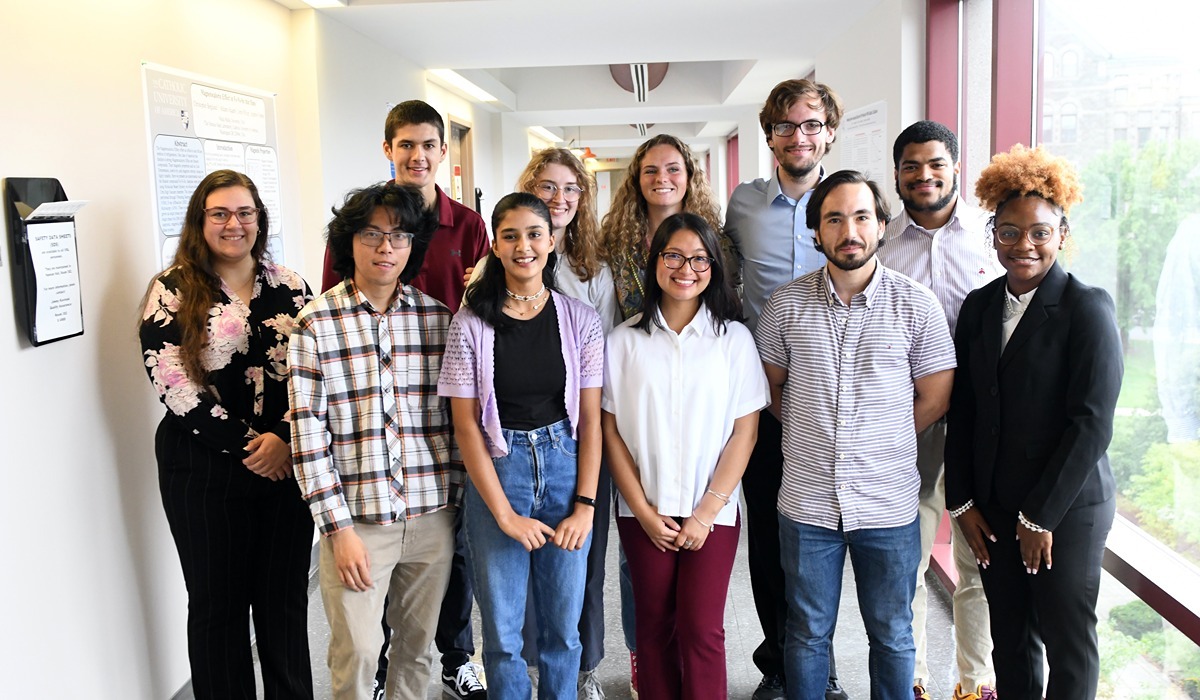

A group of undergraduates from around the country selected from nearly 100 applicants as scholars for a physics summer program celebrated the end of a transformative 10 weeks of hands-on experience.
Siena College astrophysics rising junior Josephine Swann said to be “paid, housed, and do my own research in my field. It doesn’t get much better than that.” Swann said the program provided mentorship, professional development, and research opportunities including at Jefferson Laboratory, which is one of the nation’s top research centers.
Swann said the Physics Research in the Nation's Capital program made her aware of Catholic University as a hub for exploration and innovation. As she looks toward applying to graduate schools, she said the University is “definitely on my radar now.”
The annual program offered by the Department of Physics and the Vitreous State Laboratory funds eight promising students to conduct first-hand research opportunities at top centers for scientific innovation.
VSL scientist Isabelle Muller, who manages the program, said she takes great joy in getting to know each student individually to help shape their academic interests and careers.
“Having hands-on experience makes the science you study in the classroom come alive and helps you discover what you want to pursue,” said Muller.
The University’s Summer Research Experience for Undergraduates Program in Physics has been supported by the National Science Foundation Research Experiences for Undergraduates Program since 2021. Ian Pegg, physics professor and director of the VSL, and Physics Professor Tanja Horn lead the award administration as Co-Principal Investigators of the grant.
Research topics include nuclear physics, condensed matter physics, materials physics, single-molecule biophysics, physics instrumentation and technology, and computational physics. Each of the students is assigned a project with guidance from internationally renowned scientists. The summer culminates in a conference hosted by the University where they can share the results of their work.
Jackson State University physics rising sophomore Italian Johnson said she was attracted to the program because “D.C. is a center for networking” for nanotechnology. After an exciting summer working with state-of-the-art devices in the lab, she said she expects to return to campus this fall “ahead of my peers.”
Connor Cole, a Berry College physics rising senior, said he learned how to program with Python and analyze data collected by particle accelerators. But the best part of the summer was the people he met, especially his mentor University researcher Nilanga Wickramaarachchi.
“The people are great,” Cole said.